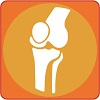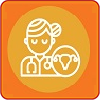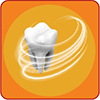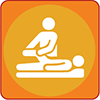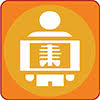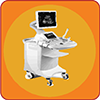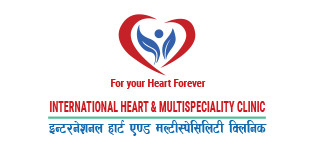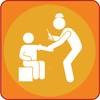
Vaccination Clinic
A Leading Travel Vaccination Centre in Nepal, we are an accredited vaccination Clinic, provide a wide range of routine and travel vaccines to Protect Yourself and Your Loved Ones from Preventable Disease. To
Know More-Please Call 014003006/9801036380/9801831096WhatsApp
Vaccination is the process whereby a person is made immune or resistant to an infectious disease, typically by the administration of a vaccine. It teaches the body's immune system to recognize and defend against harmful bacteria and viruses before getting an infection.
Vaccinations are recommended based on individual factors like age, health status, medication history, previous immunization, occupation, travel and exposure.
Vaccines remain the safest and the most cost-effective protection against various life-threatening diseases. However, it is essential that you have the support of medical experts who can guide you along the way.
For advice on immunization for your child, please see one of our Paediatricians.
Adults can see any of our General Physician or Family Medicine Specialists for detailed information on the recommended vaccines for everyday life and during travel.
Important Reasons For Adults to Get Vaccinated
You may not realize that you need vaccines throughout your adult life. Vaccines are still important to your health and here are just three reasons why.
You may be at risk for serious diseases that are still common
Each year thousands of adults get sick from diseases that could be prevented by vaccines — some people are hospitalized, and some even die.
Even if you got all your vaccines as a child, the protection from some vaccines can wear off over time. You may also be at risk for other diseases due to your age, job, lifestyle, travel, or health conditions.
You can’t afford to risk getting sick.
Even healthy people can get sick enough to miss work or school. If you’re sick, you may not be able to take care of your family or other responsibilities.
You can protect your health and the health of those around you by getting the recommended vaccines.
Vaccines lower your chance of getting sick.
Vaccines work with your body’s natural defense to lower the chances of getting certain diseases as well as suffering complications from these diseases.
Vaccines lower your chance of spreading certain diseases.
There are many things you want to pass on to your loved ones; a vaccine preventable disease is not one of them. Infants, older adults, and people with weakened immune systems (like those undergoing cancer treatment) are especially vulnerable to vaccine preventable diseases.
Vaccines are one of the safest ways to protect your health.
Vaccine side effects are usually mild and go away on their own. Severe side effects are very rare.
Immunization is ONE OF THE BEST FORMS OF PROTECTION for all travelers
Proof of VACCINE may be required to cross certain international borders; in this case, the vaccine must be given at least 10 days before travel. A stamped vaccine certificate will be issued to you when you get the vaccine.
Seasonal Flu Vaccine
Influenza, also known as the Flu, is a common viral disease affecting the respiratory system. The Flu, if untreated, can lead to more serious complications such as pneumonia, ear infections, sinus infections, dehydration, worsening of chronic medical conditions, and even, death.
Symptoms include fever, feeling feverish, cough, sore throat, runny or stuffy nose, muscle or body aches, headaches, tiredness, nausea, vomiting and/or diarrhea. However, it is important to note that not everyone with flu will experience a fever.
Flu shots are a safe way to protect everyone from any serious illness and complications, even expecting mothers. Everyone 6 months of age and older should get a flu vaccine as soon as the current season’s vaccines are available. Vaccination of high-risk people decreases their risk of severe flu illness.
Hepatitis B Vaccine
Hepatitis B is a potentially life-threatening liver infection that is transmitted through contact with the blood or other body fluids of an infected person. Hepatitis B can cause both acute and chronic disease and puts people at high risk of death from cirrhosis and liver cancer.
Symptoms include acute illness with symptoms such as yellowing of the skin and eyes (jaundice), dark urine, extreme fatigue, nausea, vomiting and abdominal pain. Acute hepatitis can develop into acute liver failure which can lead to death.
A vaccine against hepatitis B is available which is effective in preventing infection and the development of chronic disease and liver cancer due to hepatitis B. The vaccine is a 3 dose vaccine; the 2nd vaccine is given 1 month after the 1st dose and the 3rd dose is given 6 months after the 1st dose.
Hepatitis A Vaccine
Hepatitis A is a viral infection that causes the liver to become enlarged, inflamed, and tender. Severity of disease range from a mild illness, lasting a few weeks to a severe illness lasting several months.
Infected persons may not exhibit any symptoms. If symptoms are present, affected people may experience dark urine, pale colored stools, abdominal discomfort, fever, tiredness, loss of appetite, nausea, vomiting and jaundice symptoms such as joint pain and yellowing of the skin and eyes.
Getting vaccinated is the best way to prevent the spread of hepatitis A as the vaccine is nearly 100% effective. It is given in 2 doses, 6 months apart.
Human Papillomavirus (HPV) Vaccine
The Human Papilloma Virus (HPV) is the main causative agent for majority Cervical Cancer cases. Hence, prevention with HPV vaccine is instrumental in the fight against Cervical Cancer. Other prominent causes include sexual behaviour such as poor genital hygiene, early age of marriage, multiple sexual partners, etc.
Frequently, there are no symptoms for years until cancer appears.
Disease Complications: Cervical cancer in women, anal cancer, and genital warts in both women and men
Meningococcal Vaccine
Meningococcal disease can cause meningitis and other serious infections. Studies reveal that approximately 1 in 10 people who get meningococcal disease will die from it, despite timely and appropriate treatment.
Meningococcal Disease is a potentially fatal bacterial infection, expressed as either meningococcal meningitis (inflammation of the membranes surrounding the brain and spinal cord) or meningococcal septicemia (blood poisoning by the meningococcus bacteria). It spreads through the sharing respiratory and throat secretions such as saliva or spit.
All adults to get a meningitis vaccination and is strongly recommended for the following people:
Those working with meningococcal bacteria in a lab
Those living in or traveling to a country where meningococcal disease is common
Those having a condition called terminal complement deficiency
Those who may have been exposed to meningitis during an outbreak
Those who work for the military
Those who have a damaged spleen or it has been removed
Those taking certain drugs such as eculizumab
College students who need to live in a dorm
Symptoms include sudden onset of fever, headaches, stiff neck, nausea, vomiting, photophobia (eyes being more sensitive to light) and altered mental status (confusion).
The meningococcal disease vaccination includes Meningococcal conjugate or MenACWY vaccines. If you have received 1 of them, you may still need a booster dose, usually every 5 years if you remain at increased risk.
Meningococcal vaccine is necessary if you are travelling to Saudi Arabia, Mecca to take part in the Hajj or Umrah.
MMR Vaccine
It protects against 3 serious illnesses: measles, mumps, and rubella (german measles)
These highly infectious conditions can easily spread between unvaccinated people.
Getting vaccinated is important, as these conditions can also lead to serious problems including meningitis, hearing loss and problems during pregnancy.
2 doses of the MMR vaccine provide the best protection against measles, mumps, and rubella.
Poliomyelitis (IPV) Vaccine
Polio is a disease caused by a virus that affects the nervous system and is mainly spread by person-to-person contact. It is transmitted via drinking water or other drinks and/or eating raw or undercooked food that are contaminated with the feces of an infected person.
Initial symptoms include fever, tiredness, nausea, nasal congestion, sore throat, stiffness in the neck and back, pain in arms and legs. In rare cases, polio infection causes permanent loss of muscle function of the arms and/or legs. If there is a loss of function of the muscles used for breathing due to infection of the brain, death can occur.
We are usually vaccinated for Polio since birth. However, even if you were vaccinated as a child or have been infected with polio before, you may still need a booster dose to ensure you are protected.
Pneumococcal Vaccine
Pneumococcal disease is an infection caused by Streptococcus pneumoniae bacteria (‘pneumococcus’). These bacteria can cause many types of illnesses including pneumonia, ear infection, sinus infection, meningitis, and bacteremia. It is an air-borne disease, transmitted through coughing, sneezing, and close contact with an infected person.
Symptoms include fever, cough, shortness of breath, chest pain, stiff neck, confusion, disorientation, Sensitivity to light, joint pain, chills, ear pain, sleeplessness, and irritability. In severe cases, it can cause hearing loss, brain damage and also, death.
The pneumococcal vaccine is recommended to be administered since young.
Anyone 2 through 64 years of age who has a disease or condition that lowers the body’s resistance to infection, such as: Hodgkin’s disease, lymphoma or leukemia, kidney failure, multiple myeloma, nephritic syndrome, HIV infection or AIDS, damaged spleen or no spleen, organ transplant, long term steroids, certain cancer drugs, radiation therapy, smokers, and asthmatics.
Children (up through 5 years) should routinely receive 4 doses 13-valent pneumococcal conjugate vaccine.
Adults (above 65) should get the 23-valent pneumococcal polysaccharide vaccine (PPSV23) as well.
Rabies Vaccine
Rabies is a deadly disease caused by a virus that is spread in the saliva of infected animals. All mammals can get rabies. The disease is spread through licks, bites, or scratches from infected dogs and other animals such as bats, foxes, raccoons and mongooses.
Initial symptoms include general weakness and discomfort, fever, and headache. Consequently, the infected person will feel discomfort or prickling sensation at the site of bite, progressing to symptoms of cerebral dysfunction, anxiety, confusion, agitation.
Person may experience delirium, abnormal behavior, hallucinations and insomnia.
A vaccination against Rabies is recommended even before exposure to the infection. Although the pre-exposure vaccination does not eliminate the need for additional medical attention after a rabies exposure, it can decrease the number of vaccine doses needed and minimizes the adverse effects to multiple doses of vaccine. The vaccination is given in 3 doses, first as appropriate, second, 7 days after dose 1, and lastly 21 days after the first dose.
Typhoid Vaccine
Typhoid fever is caused by infection with the typhoid bacterium Salmonella Typhi (S.Typhi), which together with the similar S. paratyphi, form the group known as Enteric Fevers. Typhoid Vaccine used to prevent typhoid fever in adults and children aged two and above.
Typhoid fever is an infection that spreads through intake of contaminated food and water. This vaccine is generally recommended for individuals who are traveling to areas where typhoid fever is common. However, while traveling, it is important that you avoid contaminated food or water.
Symptoms include progressively bad fever, headache, loss of appetite, muscle pains, sometimes dry cough, constipation, and diarrhea.
It is also possible for a person without symptoms to become a carrier of the bacteria.
Typhoid Vaccine is given as an injection into a muscle by a doctor or a nurse, as a single dose, approximately 2 weeks before travelling to such an area where typhoid fever is common. A single booster dose is given to those who are at risk, every 3 years. Your doctor may also advise on the possible need for future booster dosing.
Varicella Vaccine
Chickenpox is a very contagious disease caused by the varicella-zoster virus (VZV). It causes a blister-like rash, itching, tiredness, and fever.
The vaccine is given as 2 separate injections, usually into the upper arm, 4 to 8 weeks apart.
Yellow Fever Vaccine
Yellow Fever
A viral disease that occurs in tropical regions of Africa and in parts of South America. It is transmitted to humans through the bite of infected mosquitoes.
Many yellow fever infections are mild. However severe infections can cause high fever, chills, headache, muscle aches, vomiting, backaches. In worse cases, infection can lead to shock, bleeding, kidney, and liver failure and even death.
If you are travelling to an area where yellow fever occurs, vaccinations must be administered 10 days before travel. A single dose of vaccination provides lifelong protection for most people.
Shingles (Herpes Zoster) Vaccine
Shingles, also known as herpes zoster, is a painful skin rash caused by the reactivation of the chickenpox virus (varicella-zoster virus) in people who have previously had chickenpox.
Painful rash on one side of the face or body, which blisters and then typically scabs, headache, fever, chills, and upset stomach.
Disease Complications: Severe pain that can last for months or years after the rash goes away, pneumonia, loss of eyesight and hearing, or even death
Shingrix is given as an injection into a muscle (usually in the upper arm). Shingrix, a non-live vaccine given as 2 doses, 2 months apart.
Td Vaccine
Td is tetanus and diphtheria vaccine are only for children 7 years and older, adolescents, and adults.
Tetanus (T) enters the body through cuts or wounds, causes painful stiffening of the muscles. Tetanus can lead to serious health problems, including being unable to open the mouth, having trouble swallowing and breathing,
or death.
Diphtheria (D) spreads from person to person, can lead to difficulty breathing, heart failure, paralysis, or death.
Td is usually given as a booster dose every 10 years, or after 5 years in the case of a severe or dirty wound or burn or after exposure to tetanus.
Tdap Vaccine
The vaccine is sometimes called dTpa vaccine. It stimulates the immune system to act against microorganisms to prevent such infections.
Tetanus is a serious bacterial infection that affects the nervous system and causes muscles throughout the body to become stiff and tighten. Vaccine helps the immune system to produce antibodies to fight against tetanus infection. However, it does not provide lifelong protection.
Diphtheria is a bacterial infection that causes pain and swelling in the throat. This might cause difficulty in breathing. It might also damage the heart, kidneys, and nerves. Vaccine gives protection against diphtheria.
Pertussis (often called whooping cough) is an infection of the airways that can occur at any age but mostly affects infants and young children. The infection causes uncontrollable coughing that can make it difficult to breathe. Vaccine gives protection from pertussis.
Disease Complications: Rib fractures, pneumonia, or even death
JE Vaccine
Japanese Encephalitis (JE) is a disease spread through mosquito bites. It cannot be transmitted through contact with an infected person.
Initial symptoms include fever, headache, vomiting, confusion, and difficulty in moving. If untreated, this infection may cause swelling around the brain, coma and even, death. Less than 1% of people infected with JE virus develops clinical illness. In those who develop symptoms, the incubation period (time from infection until illness) is typically 5-15 days.
The vaccination against JE is given in 2 doses that are spaced over a month. You should get the last does at least 10 days before your trip. Our doctors can help you decide if you need the JE vaccine based on the length of your trip, the areas you will be traveling and your planned activities.

